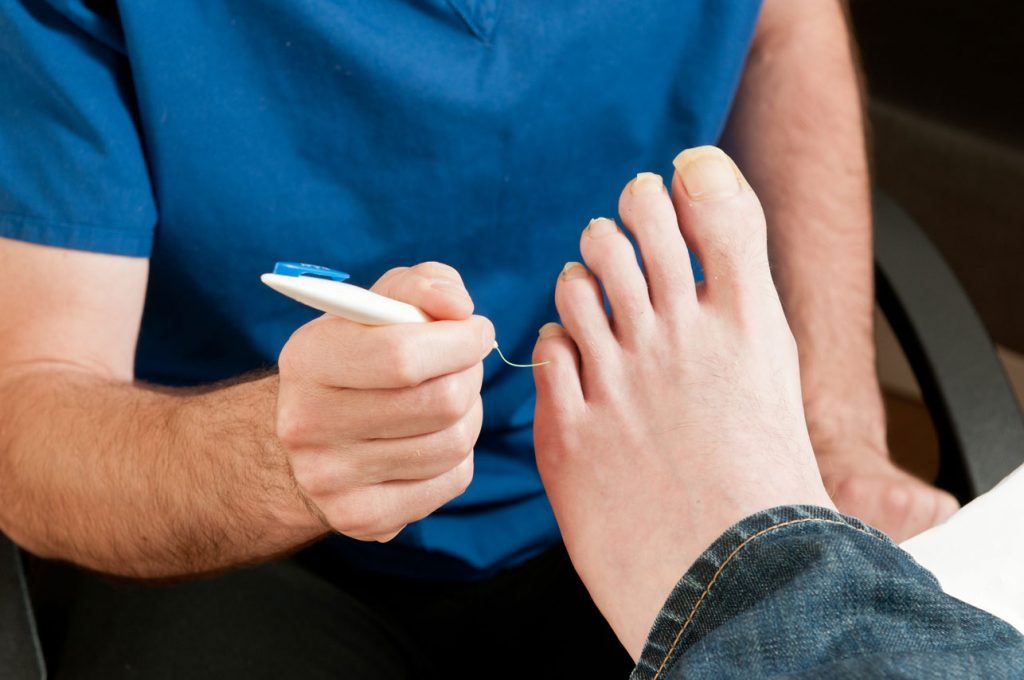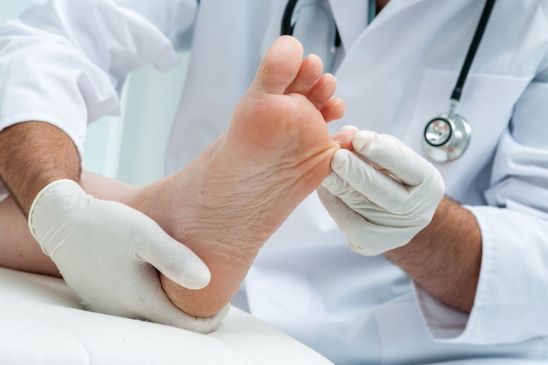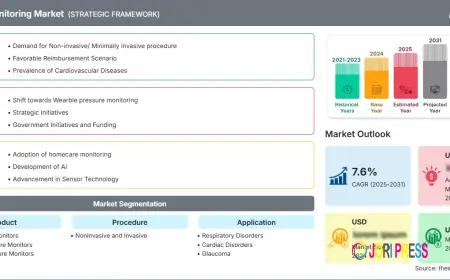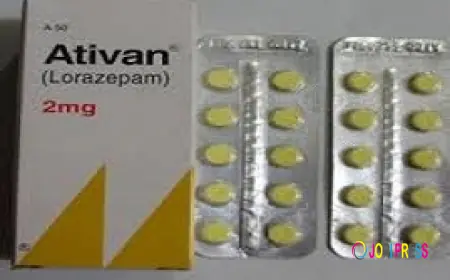Simple Lifestyle Changes for Better Foot Care in Dubai
Diabetic Foot Care At Home in Dubai – Who wants foot problems when you can handle them from your couch? Book us now and keep your feet in top shape!

Living in Dubai, with its vibrant lifestyle and scorching climate, demands special attention to foot health, especially for those managing diabetes. Poor foot care can lead to complications like infections or ulcers, which are particularly risky for diabetic individuals. By adopting simple lifestyle changes, you can enhance Diabetic Foot Care at home Dubai, ensuring your feet stay healthy and resilient. This article outlines practical, easy-to-implement habits tailored to Dubai’s unique environment, covering processes, benefits, and post-treatment care to keep your feet in top shape.
Why Foot Care Is Essential for Diabetics in Dubai
Diabetes can cause nerve damage (neuropathy) and reduced blood flow, making feet prone to injuries that heal slowly. Dubai’s hot, sandy conditions and frequent use of open-toed footwear increase the risk of cuts, blisters, and infections. Incorporating diabetic foot care at home in Dubai into your daily routine can prevent these issues, reduce medical costs, and help you enjoy an active life in this dynamic city.
The Impact of Dubai’s Environment
Dubai’s high temperatures, humidity, and sandy surfaces can exacerbate foot problems. Sweaty feet can lead to fungal infections, while hot pavements can cause burns or blisters. Proactive foot care mitigates these risks, ensuring comfort and mobility.

Simple Lifestyle Changes for Better Foot Care
Here are actionable lifestyle changes to improve diabetic foot care at home in Dubai, designed to fit seamlessly into your busy schedule.
1. Daily Foot Inspections
Make it a habit to check your feet every day for cuts, blisters, redness, or swelling. Use a handheld mirror or ask a loved one to inspect hard-to-see areas like the soles. In Dubai’s humid climate, moisture between toes can foster infections, so be thorough.
-
How to Do It: Inspect after your evening shower when your feet are clean. Use good lighting to spot issues early.
-
Why It Helps: Early detection prevents minor injuries from becoming serious, reducing the need for medical intervention.
2. Proper Foot Hygiene
Wash your feet daily with lukewarm water and mild soap to remove sweat and sand, common in Dubai. Dry thoroughly, especially between toes, to prevent fungal growth in the city’s warm, moist conditions.
-
Process: Use a soft washcloth and pat dry with a clean towel. Apply talcum powder to keep feet dry.
-
Local Tip: Pharmacies like Life Pharmacy in Dubai stock diabetic-friendly soaps for sensitive skin.
3. Moisturize Regularly
Dubai’s arid climate can dry out skin, leading to cracks that invite infections. Apply an unscented moisturizer, such as Eucerin or Vaseline, to your heels and soles, avoiding the areas between toes to prevent moisture buildup.
-
Best Practice: Moisturize after washing and drying your feet, ideally twice daily.
-
Where to Buy: Find diabetic-safe creams at Boots or BinSina Pharmacy across Dubai.
4. Choose Diabetic-Friendly Footwear
Opt for breathable, well-cushioned shoes to protect your feet from Dubai’s hot surfaces and sand. Avoid flip-flops or walking barefoot, even indoors, to prevent injuries. Seamless, moisture-wicking socks are ideal for keeping feet dry.
-
Shopping in Dubai: Visit stores like Clarks or Skechers in Mall of the Emirates for diabetic footwear.
-
Fit Matters: Get professionally fitted to ensure shoes provide proper support and don’t cause pressure points.
5. Safe Toenail Maintenance
Trim toenails straight across with a nail clipper and smooth edges with a file to avoid ingrown nails. If you have difficulty reaching your feet, consult a podiatrist at clinics like Emirates Hospitals.
-
Caution: Never cut corners or use sharp tools that could cause cuts.
-
Frequency: Trim every 10-14 days, depending on nail growth.
6. Stay Active for Better Circulation
Exercise improves blood flow, crucial for diabetic foot health. In Dubai, try walking in air-conditioned malls like Dubai Mall or swimming at Kite Beach to stay active without overheating.
-
Goal: Aim for 30 minutes of low-impact activity most days, as recommended by health experts.
-
Bonus Tip: Rotate ankles or elevate feet when sitting to boost circulation.
Home Treatments for Diabetic Foot Care in Dubai
For minor foot issues, these home treatments can be effective when done correctly under medical guidance, tailored to Dubai’s resources.
1. Managing Minor Cuts and Blisters
Clean small cuts or blisters with saline solution, available at pharmacies like Aster Pharmacy in Dubai. Apply a prescribed antibiotic ointment and cover with a sterile bandage to protect against infection.
-
Steps: Rinse the wound with saline, pat dry, apply ointment if advised, and cover with a non-stick dressing.
-
When to Seek Help: If signs of infection (redness, swelling, or pus) appear, visit a clinic like Mediclinic Dubai Mall within 48 hours.
2. Treating Calluses and Dry Skin
Soften calluses by soaking feet in lukewarm water for 5-10 minutes, then gently rub with a pumice stone. Follow with a thick moisturizer to keep skin supple. Avoid chemical callus removers, which can damage diabetic skin.
-
How to Do It: Soak, gently scrub in one direction, and apply a cream like Neutrogena Foot Cream.
-
Availability: Pumice stones and moisturizers are widely available at Carrefour or pharmacies in Dubai.
Post-Treatment Care for Optimal Foot Health
After treating foot issues at home, proper post-care ensures healing and prevents recurrence.
Monitor Healing Closely
Check treated areas daily for improvement or signs of infection. Keep a record of changes to discuss with your doctor during follow-ups at facilities like Dubai London Clinic.
-
Tip: Take photos to track progress and share with your podiatrist if needed.
-
Frequency: Daily checks until the issue resolves.
Control Blood Sugar Levels
Stable glucose levels promote healing and reduce infection risk. Follow a balanced diet with low-glycemic foods like lentils and greens, available at markets like Spinneys in Dubai. Use glucose monitors from pharmacies to track levels.
-
Diet Tip: Consult a nutritionist at clinics like American Hospital Dubai for personalized plans.
-
Medication: Adhere to prescribed treatments to support foot healing.
Regular Podiatrist Visits
Schedule annual or bi-annual podiatrist visits for comprehensive foot exams, especially if you have neuropathy. Dubai’s healthcare hubs, like CMC Dubai, offer advanced diagnostics like vascular assessments.
-
What to Expect: Tests for sensation, circulation, and structural issues.
Benefits of These Lifestyle Changes
Adopting these changes for diabetic foot care at home in Dubai offers significant advantages:
-
Prevents Complications: Reduces the risk of ulcers and infections, which affect 15-25% of diabetics.
-
Saves Money: Home care lowers the need for costly treatments in Dubai’s premium healthcare system.
-
Enhances Mobility: Healthy feet let you enjoy Dubai’s attractions, from desert safaris to beach walks.
-
Promotes Independence: Empowers you to manage your health confidently.

Common Queries Answered
How Often Should I Inspect My Feet?
Daily checks are critical, especially in Dubai’s climate, to catch issues early and prevent escalation.
Are Home Remedies Safe for Diabetic Feet?
Use only doctor-approved treatments. Over-the-counter products can harm sensitive skin, so consult a specialist.
What Footwear Suits Dubai’s Climate?
Breathable, supportive shoes from brands like Ecco or New Balance, available at Dubai’s malls, are ideal.
Conclusion
Embracing simple lifestyle changes for Diabetic Foot Care at home in Dubai can transform your foot health, helping you thrive in this fast-paced city. From daily inspections to proper footwear and home treatments, these habits are easy to adopt and highly effective. Pair them with professional care and blood sugar management to prevent complications and enjoy Dubai’s active lifestyle. Start today to keep your feet healthy and ready for everything this vibrant city offers.
What's Your Reaction?
 Like
0
Like
0
 Dislike
0
Dislike
0
 Love
0
Love
0
 Funny
0
Funny
0
 Angry
0
Angry
0
 Sad
0
Sad
0
 Wow
0
Wow
0



















































